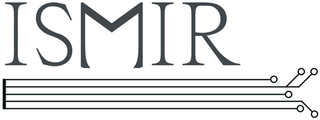The Society of Hispanic Professional Engineers (SHPE) was founded in Los Angeles, California in 1974 by a group of engineers employed by the city of Los Angeles. Their objective was to form a National organization of professional engineers to serve as role models in the Latino community.

The Society of Petroleum Engineers (SPE) is a 501(c)(3) not-for-profit professional organization.
The Society of Plastics Engineers (SPE) is a global professional membership organization dedicated to the advancement of knowledge and education for professionals employed in the plastics industry.
The American Institute of Chemical Engineers (AIChE) is a professional organization for chemical engineers. AIChE was established in 1908 to distinguish chemical engineers as professionals independent of chemists and mechanical engineers.

The Institute of Materials, Minerals and Mining (IOM3) is a British engineering institution with activities including promotion of the development of materials science.
Dr. Ramulu Mamidala is a mechanical engineering professor at University of Washington. Usually goes by the name 'Ram', or 'M.R.', he is recognized for his leadership and outstanding record in promoting collaborative education and research with industry. He is currently the director of Manufacturing Science and Technology Laboratory (MSTL) at Mechanical Engineering Department, University of Washington. He has designed and developed manufacturing methods for a wide range of systems, from the B2 bomber to the Boeing 787. Additionally, in collaboration with industry, he established and directed two interdisciplinary graduate educational programs in engineering and management and a certificate program in composites tooling and manufacturing. His exemplary collaborative efforts motivated working engineers to pursue doctoral studies and he is a leader in using emerging technologies in distance education to reach non-traditional students.

The Minerals, Metals & Materials Society (TMS) is a professional organization for materials scientists and engineers that encompasses the entire range of materials and engineering, from minerals processing and primary metals production to basic research and the advanced applications of materials.

Aeronautical Society of India (AeSI) is the principal Society in India serving the professions in areas of aeronautics, aerospace and aviation. Its stated primary purpose is to "advance the sciences, engineering, technology and management of aerospace, aeronautics and aviation and to foster and promote the professionalism of those engaged in these pursuits".
The Society of Allied Weight Engineers (SAWE) is a professional society of engineers that pertains to the specific field of Mass Properties.
Cambridge Scientific Abstracts was a division of Cambridge Information Group and provider of online databases, based in Bethesda, Maryland, before merging with ProQuest of Ann Arbor, Michigan, in 2007. CSA hosted databases of abstracts and developed taxonomic indexing of scholarly articles. These databases were hosted on the CSA Illumina platform and were available alongside add-on products like CSA Illustrata. The company produced numerous bibliographic databases in different fields of the arts and humanities, natural and social sciences, and technology. Thus, coverage included materials science, environmental sciences and pollution management, biological sciences, aquatic sciences and fisheries, biotechnology, engineering, computer science, sociology, linguistics, and other areas.

The American Ceramic Society (ACerS) is a nonprofit organization of professionals for the ceramics community, with a focus on scientific research, emerging technologies, and applications in which ceramic materials are an element. ACerS is located in Westerville, Ohio.
The Materials Research Society (MRS) is a non-profit, professional organization for materials researchers, scientists and engineers. Established in 1973, MRS is a member-driven organization of approximately 13,000 materials researchers from academia, industry and government.
The Society of Vacuum Coaters (SVC) is a non-profit, international, professional organisation for individuals who are involved in depositing films and coatings in vacuum or rarefied environments for surface engineering purposes.

The Cornish Institute of Engineers (CIE) was founded in 1913 by the then Principal of the Camborne School of Mines, J.J. Beringer. Its first President, Josiah Paul, was appointed on 1 March 1913. It is the only institute in Cornwall and maintains a continuous programme of lectures. The origins of the Institute go back to the Camborne Association of Engineers, a small but prestigious body existing in the early years of the 20th century and composed mainly of mechanical engineers. Since 2011, the CIE has been affiliated with the Institute of Materials, Minerals and Mining.

The Environmental and Engineering Geophysical Society (EEGS) is an international, applied scientific organization that has 700 members. One of the society’s major activities is producing its annual meeting, the Application of Geophysics to Engineering and Environmental Problems (SAGEEP). It develops and distributes a peer-reviewed scientific journal, the Journal of Environmental and Engineering Geophysics (JEEG), as well as an electronic quarterly newsletter, FastTIMES. It publishes, markets, and distributes books and CD-ROMs on the application and use of near-surface geophysical technologies, both in print and electronically.
The College of Engineering at Michigan State University (MSU) is made up of 9 departments with 168 faculty members, over 6,000 undergraduate students, 10 undergraduate B.S. degree programs and a wide spectrum of graduate programs in both M.S. and Ph.D. levels. Each department offers at least one degree program, however many include more than one degree, multi-disciplinary programs, certifications and specialties as well as other degree programs affiliated with other colleges at Michigan State University.

The International Society for Music Information Retrieval (ISMIR) is an international forum for research on the organization of music-related data. It started as an informal group steered by an ad hoc committee in 2000 which established a yearly symposium - whence "ISMIR", which meant International Symposium on Music Information Retrieval. It was turned into a conference in 2002 while retaining the acronym. ISMIR was incorporated in Canada on July 4, 2008.
John J. Tracy is the retired chief technology officer (CTO) of The Boeing Company, the world's largest aerospace company. At Boeing, he held the dual roles of CTO and Senior Vice President of Engineering, Operations & Technology from June 2006 to mid 2016.

Wiesław Kazimierz Binienda is a Polish-American scientist, researcher, PhD, and professor and co-director of the Gas and Turbine Research and Testing Laboratory on the Department of Civil Engineering at the University of Akron.

School of Astronautics, HIT is the Engineering school of Harbin Institute of Technology. The school is the first-ever school to initiate college education in astronautics discipline in China.









